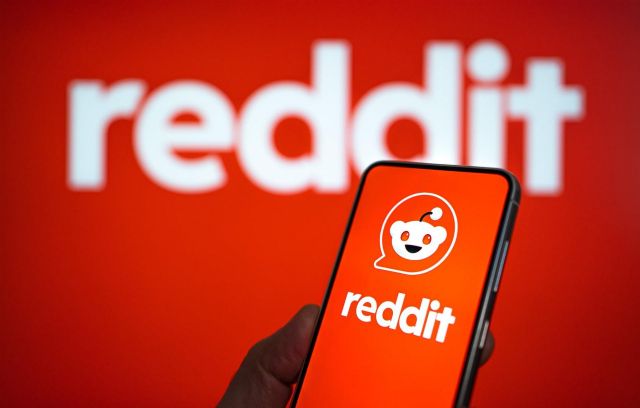How to trade Netflix shares

Learn all about Netflix, with information on the company’s history and share price journey, its share trading hours, and how to trade CFDs on Netflix shares with Capital.com.
What is Netflix?
Founded in 1997 in California by Reed Hastings and Marc Randolph, Netflix is a streaming service offering TV shows, movies, documentaries, and more across thousands of internet-connected devices. For the price of a monthly subscription, users can watch an unlimited amount of content without commercials. Netflix also produces its own original content, which includes films, series, and documentaries, contributing significantly to its popularity and growth as a prominent global entertainment service.
Netflix listed on the Nasdaq stock exchange in 2002 under the ticker ‘NFLX’ and has since become recognised as one of the most-followed tech stocks available to trade. Originally a DVD rental service, Netflix diversified into streaming in 2007 and now fights for market share with such industry giants as Amazon Prime Video, Disney+, Hulu, and Apple TV, competing for viewership and exclusive content rights.
In the 2023 fiscal year, the company’s revenue amounted to some $33.7bn.
What is the Netflix share price history?
The Netflix share price history has shown significant fluctuations since its 2002 IPO. Its listing price was $15 a share (adjusted for stock splits) and it saw modest gains alongside the success of its DVD rental service. When it moved to a streaming model in 2007 though, the increasing subscriber growth started to convince market participants of the stock’s potential.
In the 2010s decade, the company began its expansion into international markets, fuelling revenue and share price growth, and in 2013 its first original series ‘House of Cards’ marked the start of its content creation journey. 2015 saw a 7 for 1 stock split that made its shares more accessible. However, Netflix missing subscriber growth targets has led to sharp declines in share price following some key earnings events.
In more recent years, the 2020 Covid-19 pandemic helped boost the Netflix share price as lockdowns worldwide led to a surge in streaming and subsequent subscriber numbers. However, market saturation, inflation and interest-rate changes are among the drivers that have led to volatility, and 2022 saw significant falls as subscriber growth stalled. A rebound in 2023, when the stock rose 65% over the year, was caused by a lower-priced, advertising-supported service in addition to a crackdown on unpaid account sharing.
(Past performance is not a reliable indicator of future results)
What factors might affect the Netflix live share price?
The Netflix share price can be impacted by a range of key sector-specific fundamental events. Here are a few of the main factors that traders should watch out for.
- General financial performance/earnings reports: the company’s quarterly earnings are a key time for the share price, with subscriber growth, revenue and profit margins under the spotlight. Results out of line with analyst expectations can often result in a fluctuating share price, both up and down.
- Subscriber growth: building its subscriber base is a core focus for Netflix, and changes in customer acquisition patterns can impact its share price heavily, being the key metric by which the company’s success is judged.
- Content success: popular shows can boost subscriber growth and revenues and lift the share price in turn, meaning the performance of the company’s original content is critical. Meanwhile, less popular releases can lead to concerns about content strategy and allocation of capital, sinking the share price.
- Competitive landscape: rivals such as Disney+, Amazon Prime and HBO Max all have vast resources to invest in new services, exclusive content deals and technological innovation, potentially stealing market share from Netflix and impacting share price.
- Economic conditions: any major macroeconomic events such as interest-rate hikes, economic downturns and high inflation can hit the discretionary spend budgets of would-be subscribers and make Netflix shares less appealing.
What are the Netflix stock trading hours?
The Netflix stock trading hours are Monday to Friday from 2:30pm to 9:00pm (UK time) - corresponding to 1:30pm to 8:00pm in UTC.
Learn more about the world stock market trading hours.
If you choose to trade CFDs, you can follow the Netflix stock performance live in USD with the comprehensive Netflix share price chart.
Monitoring the company’s activity can help you to keep an eye out for any key fundamental or technical events that may affect short-term movements in the share value.
How to trade Netflix shares with CFDs
If you want to take a position on Netflix shares, you have two options. First, you can buy physical shares in the company through the exchange on which it’s listed. In this case, investing in Netflix stock means you will own a share, or shares, in the company. This can be considered a long-term investment, as you’re hoping for the price to rise over time.
Learn more about the differences between trading vs investing.
Alternatively, you can trade a derivative product such as a contract for difference (CFD) on the underlying Netflix stock market price, and speculate on its price movements without actually owning the asset. A CFD is a financial contract, typically between a broker and a trader, where one party agrees to pay the other the difference in the value of a security, between the opening and closing of the trade.
Unlike physical share ownership, you can either hold a long position (speculating that the price will rise) or a short position (speculating that the price will fall). This is considered a short-term investment or trade, as CFDs tend to be used within shorter timeframes.
Another key difference between buying physical Netflix shares and trading through a derivative is the leverage that can be employed with the latter. CFDs are traded on margin, which means that a trader can get exposure to larger positions with a relatively small outlay. This amplifies the potential profits, but also the potential losses, making leveraged trading risky.
You can learn how to trade shares in our comprehensive guide to shares trading.
To trade Netflix stock CFDs with us, just sign up for a Capital.com account, and once you’re verified, you can use our advanced web platform or download our intuitive yet easy-to-use app. It’ll take just a few minutes to get started and access the world’s most-traded markets.
Why trade Netflix CFDs with Capital.com?
Trading Netflix CFDs with Capital.com means you’ll enjoy an intuitive, easy-to-use platform, 24/7 support, fair and transparent pricing, along with award-winning education to help build your experience in the markets.* You can seamlessly integrate our smart platform with elite third-party software TradingView and MT4, and refine your strategies with our risk-free demo.
*Awarded best-in-class for education at ForexBrokers.com’s 2024 Annual Awards
FAQs
Who owns Netflix?
The ownership structure of Netflix consists of co-founder Reed Hastings and senior executive David Hyman, along with institutions such as BlackRock, Fidelity Investments and the Vanguard Group.
How much are Netflix shares?
As with any asset, the Netflix share price is dynamic and liable to change at any time. If you’re trading this stock, it’s important to check out the Netflix chart frequently to keep on top of price movements, as well as retain a strong understanding of the fundamental and technical influences that can cause the price to shift.
What market is Netflix listed on?
Netflix has been listed on the Nasdaq Stock Exchange since its IPO in 2002.
How to invest in Netflix stocks
If you want to invest in Netflix, you can buy and own the physical share, for example through a stockbroker, at a price you think you can profit on in time. Alternatively, trading a derivative, for example through a CFD, can give you leveraged exposure to the underlying price without ownership. However, leverage means that both profits and losses are amplified, making it risky.
Is Netflix stock a good buy?
Whether Netflix is a good stock to buy is dependent on market conditions and the individual judgement of traders. On a technical level, you might consider technical indicators such as the RSI or MACD to identify potential support and resistance. From a fundamental standpoint, a knowledge of the standing of competitors, earnings release timings, and the regulatory landscape are all key factors that could influence your buy or sell decisions.
Visit our other complete trading guides

How to trade Disney shares
